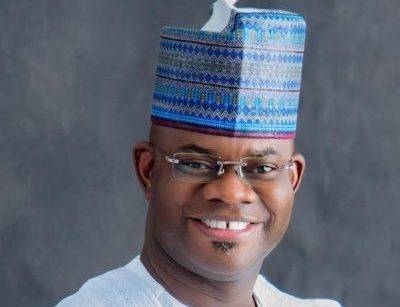Former Governor of Kogi State, Yahaya Bello, has filed a request to transfer the Economic and Financial Crimes Commission (EFCC) case against him from Abuja to Kogi State. Bello’s legal team argues that since the alleged offence was committed while he was governor of Kogi State, it is only fitting for the case to be heard in the state. This move is seen as a strategic step to ensure a fair trial, as the alleged offence is closely tied to his official duties as governor.
The EFCC had filed an amended 17-count charge against Yahaya Bello, his nephew Ali Bello, Dauda Sulaiman, and Abdulsalam Hudu for alleged money laundering offences totalling N84 billion. By seeking a transfer of the case to Kogi State, Bello’s lawyers aim to ensure a fair and unbiased hearing, where witnesses and evidence are more readily available. This development highlights the importance of ensuring that justice is served in a transparent and accountable manner, and that the former governor is held accountable for his actions while in office.
Transfer Request Based on Fair Trial Concerns
Yahaya Bello’s legal team is seeking a change of venue for the EFCC case, citing concerns about a fair trial in Abuja. By requesting the transfer to Kogi State, Yahaya Bello’s lawyers aim to ensure that the trial is held in a jurisdiction where the alleged offence was committed, and where witnesses and evidence are more readily available.
The transfer request is seen as a strategic move to secure a more favourable environment for Yahaya Bello’s defence. His legal team is likely to argue that the case is closely tied to his official duties as governor and that a Kogi State court is better equipped to handle the matter.
EFCC’s Case Against Yahaya Bello
The EFCC’s case against Yahaya Bello centres on allegations of money laundering and breach of trust during his tenure as governor of Kogi State. The amended charge includes 17 counts, with Yahaya Bello accused of conspiring with others to convert state funds for personal use.
The EFCC’s investigation has been ongoing since 2022, with Bello’s nephew and associate, Ali Bello and Dauda Sulaiman, already facing charges. The addition of Bello’s name to the charge sheet marks a significant development in the case, with the EFCC alleging that he played a key role in the alleged fraud.
Kogi State Government’s Reaction to the Case
The Kogi State Government has responded to the EFCC’s case against Yahaya Bello, describing the allegations as “ridiculous” and “politically motivated.” In a statement, the government condemned the EFCC’s “desperation” to charge Yahaya Bello, claiming that the alleged offence occurred before he assumed office as governor.
The government’s reaction highlights the political tensions surrounding the case. Yahaya Bello’s supporters see the EFCC’s action as a witch-hunt, while critics argue that the former governor must face justice for his alleged role in the fraud.
Yahaya Bello’s Defence Strategy
Yahaya Bello’s legal team is expected to employ a robust defence strategy to counter the EFCC’s allegations. By seeking a transfer of the case to Kogi State, Bello’s lawyers aim to shift the focus to the state where the alleged offence was committed.
Yahaya Bello’s defence may also centre on his official duties as governor, arguing that any actions taken were in the course of his official responsibilities. His legal team may also challenge the EFCC’s evidence and witnesses, seeking to discredit the prosecution’s case.
Implications of the Case on Kogi State Politics
The Economic and Financial Crimes Commission (EFCC) case against former Governor Yahaya Bello has significant implications for Kogi State politics. As a prominent figure in the state, Bello’s political future and that of his allies hang in the balance, pending the outcome of the case. The Kogi State Government and Bello’s supporters have already cried foul, accusing the EFCC of political bias, further fueling the political tensions surrounding the case.
The outcome of the case will be closely watched, with many expecting it to have far-reaching consequences for the state’s political landscape. A conviction could significantly weaken Yahaya Bello’s political influence, while an acquittal could embolden his supporters and potentially shift the political dynamics in the state. As the case unfolds, its impact on Kogi State politics will be closely monitored, with many anticipating a significant shake-up in the state’s political hierarchy.
Table of Contents
Discover more from OGM News NG
Subscribe to get the latest posts sent to your email.














